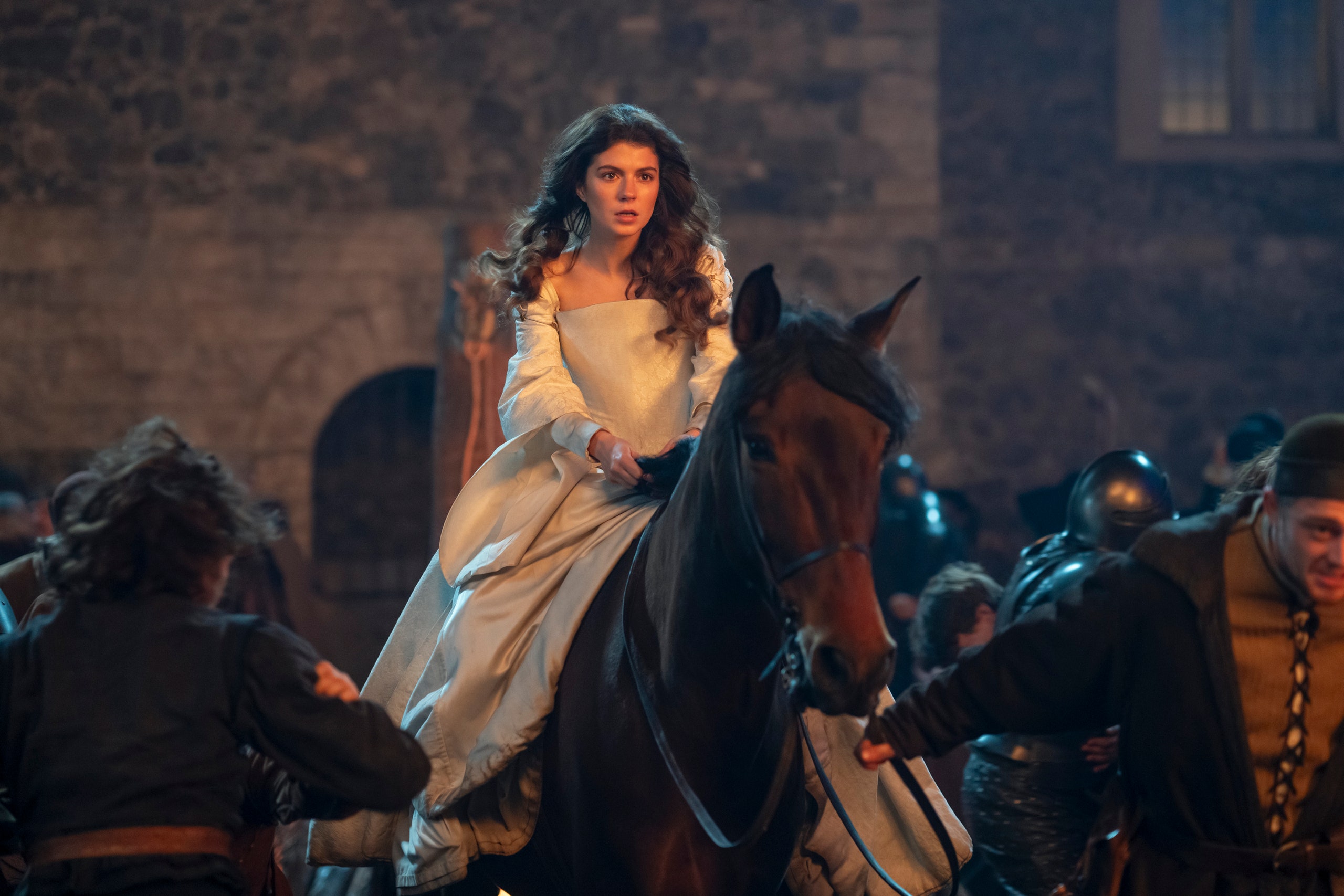"Bridgerton Paved the Way for My Lady Jane | Vanity Fair"

After her nine-day stint as England’s teenage Tudor queen, Lady Jane Grey was beheaded and banished to the footnotes of her era. “History remembers her as the ultimate damsel in distress,” as the narrator of Prime Video’s My Lady Jane puts it. Then: “Fuck that. What if history were different?”
The narrator (Oliver Chris) then recaps the events that led to Jane’s short-lived reign. A great-niece of Henry VIII (“Treated his wives like Kleenex—one blow and you’re out”), Jane is named heir to the throne (“bloody shocker”) after her cousin Edward VI dies. She is an “intellectual rebel, a bit of a pain in the ass, and a political pawn for her ambitious noble family” who lasts little more than a week on the throne before “off with her head.” While Lady Jane’s story has been told before—she’s the subject of Paul Delaroche’s famous portrait and a 1986 film starring Helena Bonham Carter—this is the first full-blooded anachronistic reimagining of the tragic heroine.
Historical fan fiction with a contemporary tilt has been all the rage as of late: see Hulu’s The Great; AppleTV’s The Buccaneers and Dickinson; Broadway’s Six; and—most recently—Netflix’s Bridgerton, which concluded its record-breaking third season on June 13. One fortnight later, another edgy eight-episode period romance swept in to fill the void.
On the surface, Bridgerton and My Lady Jane share a lot of DNA, from modernized soundtracks (Taylor Swift and Billie Eilish are traded for Kate Nash and Tegan and Sara) to bodice-ripping love scenes. But the shows feel vastly different in tone, a divide best encapsulated by a viewer who writes that My Lady Jane is “like if they wrote Bridgerton on ketamine, and I mean that in a good way.” (Prime Video, if you’re here, the phrase “Bridgerton on ketamine” should be to this show’s marketing what “Every Parent’s Nightmare” was to Gossip Girl.)
This content can also be viewed on the site it originates from.
Based on the bestselling novel by Brodi Ashton, Cynthia Hand, and Jodi Meadows, the series was created by Gemma Burgess, who serves as co-showrunner with The Boys’ Meredith Glynn. Our spirited Jane Grey (Emily Bader) is a staunchly independent herbalist—she cures her best friend’s venereal disease via homemade salve in the show’s opening scene—who is afflicted by an arranged marriage. Jane must wed the rakish Guildford Dudley (Edward Bluemel) to save her family from destitution. Both parties enter into the union kicking and screaming, their palpable physical attraction to each other be damned.
But mere hours into their marriage of convenience, Jane makes a discovery that throws the rest of her life—and this bonkers series—into utter chaos. Jane’s new husband Guildford is, stay with me here, a horse.
To be clear: This is not a Dr. Dillamond in Wicked or Mr. Tumnus in Narnia situation. Guildford is not half man, half beast: He can turn into a fully neighing, trotting, stable-sleeping steed. It’s blatantly absurd, but he’s not this universe’s only shape-shifter. Just 10 minutes into the show’s first episode, Jane’s lady’s maid and innermost confidant Susanna (Máiréad Tyers)—yep, the same one recovering from the clap—morphs from woman to hawk. (No, not that one.)
“Did I mention that, in this world, some people can transform themselves into an animal?” the show’s narrator offers. We learn that both Susanna and Guildford are Ethians: humans who can take animal form and are often hunted by pure-blooded people known as Verities. If you hadn’t figured it out yet, this is meant to be a metaphor for the Protestant-Catholic conflict in Tudor England. And in case you were wondering, according to the series, Anne Boleyn was Ethian—“An animal both in and out of the sack,” Guildford’s father (Rob Brydon) quips.
Henry VIII has largely exiled the Ethians from polite society and made it illegal for regular folks to fraternize with the group, meaning they often have to scrounge and steal in order to survive. It’s unclear how, exactly, an Ethian is detected because they can shape-shift at their own whim—a man takes to his grizzly bear form during a barside brawl; a woman shifts out of her existence as a lap dog named Petunia to alert King Edward (Jordan Peters) that he’s being poisoned. But that same courtesy doesn’t extend to Guildford, who has never had control over when he begins to—sorry—horse around.




